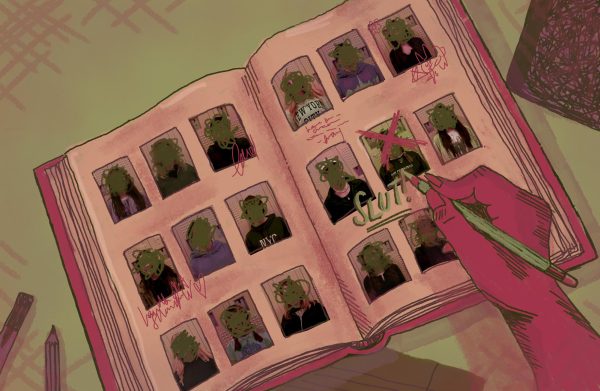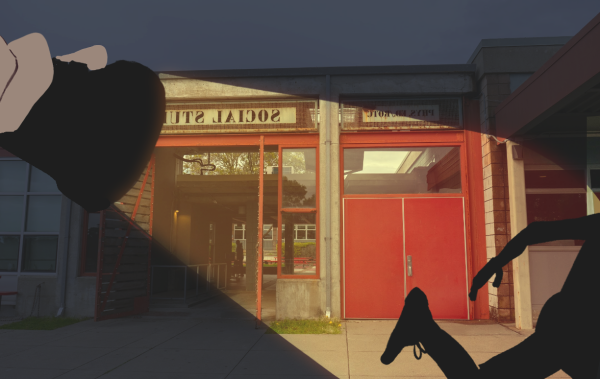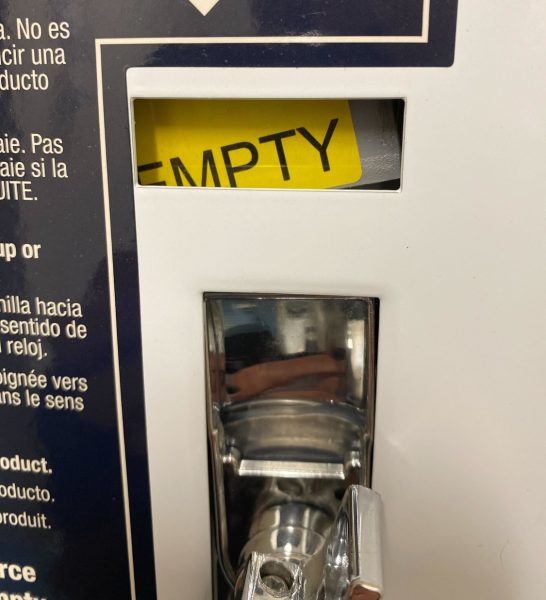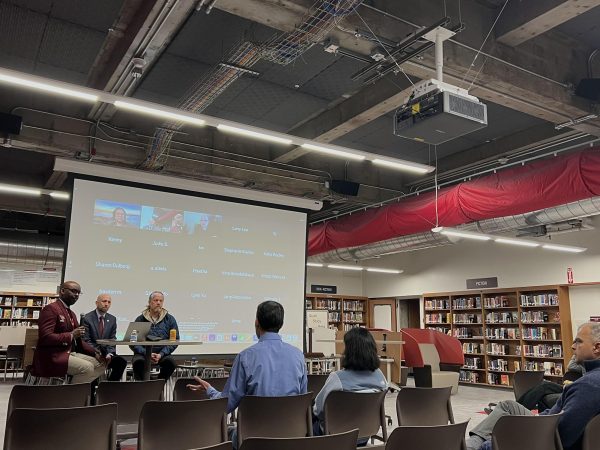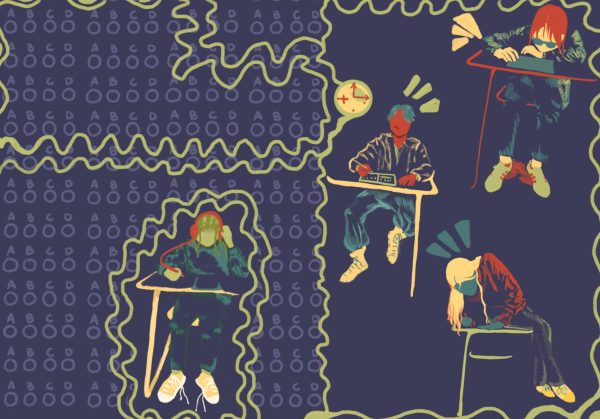Reflecting on race and identity: Monthly meetings bring cultural sensitivity training to staff
By Ethan Zhang
“We have some of the brightest minds. It’s our duty to create equitable paths for all students.”
This is Wellness Center secretary Carol Chao Herring’s personal stance on the equity issue at Lowell, and she isn’t alone in believing the school needs to make a change. After the Black Student Union led a walkout to protest a culturally insensitive controversy last year, the Lowell administration began taking new steps to solve this problem.
The Lowell faculty is currently undergoing a series of professional development meetings focused on equity, hosted by the San Francisco Coalition of Essential Small Schools. SF-CESS has implemented similar programs at Mission High School, Thurgood Marshall High School and Paul Revere K-8 School.
Defining equity is the first step to moving forward, according to SF-CESS Administrator Gregory Peters. “Equity is not equality,” Peters said. “It’s not about equal input, but equal output. With equity, we have to be unequal in our input to support people in different places.”
The PD meetings take place once a month and are intended to be part of a four-year program. Each meeting is two hours long. To accommodate for these meetings, the school has implemented a special extended Monday PD schedule with school beginning at 10:40 a.m. and ending at 3:30 p.m., with 30 minute classes in between. “The work we really do is to help schools look at their systematic issues,” Peters said. “For a school to really engage, we are talking about a four-year period.”
In addition to the six SF-CESS facilitators, there are also seven teacher facilitators, who completed training in the summer. The two-week summer training cost the school district $37,000. The facilitators work in pairs to lead a group of 24–28 teachers, called “Home groups” who are also divided into smaller groups, called “iGroups.”
“With equity, we have to be unequal in our input to support people in different places.”
The first PD meeting took place on Aug. 29 and focused primarily on building community and trust. Staff shared personal definitions of equity and examined its implications on class curriculum. The activities incorporated norms, or agreed-upon standards of discussion, such as “contextual confidentiality,” where discussions are kept private between participants, and “patterns of participation,” where members are asked to participate equally in the discussion. Teachers brainstormed hashtags to show their understanding of the norms.
The second meeting, on Sept. 19, focused on developing language to describe micro and macro cultures, as well as self-reflection about each individual’s culture and assumptions about that culture. Staff members discussed a letter written by African-American students in the district about how they feel they are viewed in the classroom.
The third meeting, on Oct. 24, asked the faculty to explore the timeline of turning points in public education. Facilitators reinforced norms, and staff discussed the assigned reading, Courageous Conversations About Race.
The fourth meeting, on Nov. 21, focused on racial consciousness and the impact of race in one’s life. The staff created poems about their racial identities, experiences and perceptions.
Lowell staff members are split on whether or not they believe the PD meetings are effective.
In October, several teachers filed complaints to the teachers’ union about the PD meetings, according to union representative Katherine Melvin. In response to these complaints, the Lowell administration asked the Union Building Committee to survey the faculty on the timeliness and effectiveness of the meetings, according to Melvin.
“I have no idea how to fix this, but I think it starts with hearing more of the students’ voices and getting teachers together to talk.”
According to the results, 83 percent of the faculty surveyed agreed with the goal of the meetings. However, only 29.5 percent deemed the PD meetings “necessary and timely in reaching the goal.”
Many teachers dislike the extended Monday PD Schedule. Over half the faculty surveyed reported that they would prefer an alternate schedule for the meetings, with the favored alternative as two one hour meetings per month, with 40 minute classes. “The meetings take up valuable class time,” Math department head Tom Chambers said. “Conducting 30-minute classes is also a rush.”
Some teachers felt that the voices of the students needed to be heard. In the survey, one anonymous faculty member stated, “We have a problem of some students not feeling a part of the community. I have no idea how to fix this, but I think it starts with hearing more of the students’ voices and getting teachers together to talk.”
Peters said he plans to include a student group in addition to the staff groups in future meetings.
English teacher Samantha Yu agrees with the goal of the meetings, but thinks the execution could use work. “These meetings should go more in depth about classroom application of these principles,” she said.
“If my students are hurting, I am hurting as well.”
Other faculty members feel that these meetings are a valuable opportunity for growth in the Lowell community. “I learned to look at myself and my own ideas and challenges around equity,” Herring said.
Despite the mixed opinions, Principal Ishibashi wants to do what’s best for his students. “It doesn’t matter what color you are,” said principal Andrew Ishibashi. “If my students are hurting, I am hurting as well.”
Ishibashi is deciding whether to continue funding these meetings. Originally, the program was arranged to be funded by the school district, but after the resignation of Chief of Schools Abram Jimenez in July, the PD meetings must now be paid for with school funding. Currently, Ishibashi is trying to negotiate the $113,000 per year price tag with SF-CESS representatives. His decision is set to be announced at the next School Site Council meeting on Nov. 28.
For now, the staff continue to debate the effectiveness of these meetings. “I think we all want to address these issues, but how we are going to get there is unclear.” English teacher Stephanie Crabtree said.
The next PD meeting will take place on Dec. 5.







